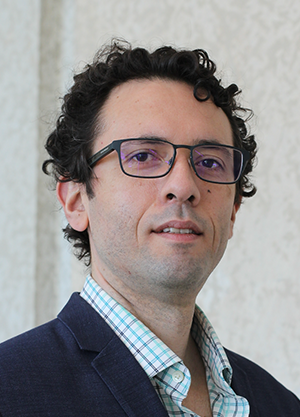The Geotechnical Society of Edmonton is pleased to present the Canadian Geotechnical Society Colloquium Presentation featuring Dr. Renato Macciotta.
Date: November 7, 2022
Time: 11:30am – 1:30pm
Location: University of Alberta Club (formerly Faculty Club), 11435 Saskatchewan Drive, Edmonton
Food: Soup and Sandwiches
Cost: GSE/CGS Members $30, Students $10, Non-members $35
Register for in-person attendance on EventBrite
Abstract
Landslides are ubiquitous across Canada and can originate from natural slopes or from engineered slope cuts. It is well understood they pose hazards to human safety, economic activities and the environment. Canada has witnessed fatal landslide-related incidents (e.g. Frank slide and Hope slide in the Canadian Cordillera) and higher frequency, lower consequence landslide movements affect urban developments and a variety of industries annually (e.g. pipelines, highways and railway corridors; hydropower reservoirs, open pit mining, urban development). Managing natural and cut-slope risks therefore becomes key for the sustainability of a variety of socioeconomic activities, with decision making for adopting different management strategies reflecting available resources and evaluated risk levels.
Risk evaluation can be done directly through estimates of the risk levels associated with the slopes in question or indirectly through design acceptance criteria in light of the potential consequences of a slope failure. In any case, risk estimates and slope evaluations will be associated with different levels of uncertainty. The 2021 CGS Colloquium started discussing the role of uncertainty in slope evaluations and presented work that aims at quantifying the effects of uncertainty in the estimation of risk. Examples are presented where parameter and epistemic uncertainty in the risk analysis process are represented as probabilistic distributions, therefore rendering a measure of uncertainty in the calculated risks.
The colloquium also discusses the potential change in landslide risk associated with Climate Change. The challenge becomes understanding the possible changes in risk magnitudes and temporal trends as weather characteristics evolve (e.g. total annual precipitation, number of freeze-thaw cycles, snowpack and spring thawing).
Examples of quantifying the relationship between rock fall occurrences and weather are presented, and the potential use of these relationships to understand changes in rock fall related risk with climate change. Finally, the colloquium discusses the effect of design uncertainty in the likelihood of failure, and how confidence in slope design can be increased through performance monitoring. An example is presented on how performance monitoring, leading to reductions in parameter and epistemic uncertainty, can be leveraged in open pit design to achieve cost-effective, safe slope designs.
Dr. Renato Macciotta
Renato is an Assistant Professor at the Department of Civil and Environmental Engineering and the School of Engineering Safety and Risk Management at the University of Alberta, Edmonton, Canada. He has a B.Sc. in Civil Engineering from the Catholic University of Peru, and a Ph.D. in Geotechnical Engineering from the University of Alberta. Renato has 14 years of research experience and 17 years of practical experience working in civil, mining and risk engineering projects. Renato is past president of the GSE and his work has been published over 60 peer-reviewed journal publications and over 50 conference proceedings.

